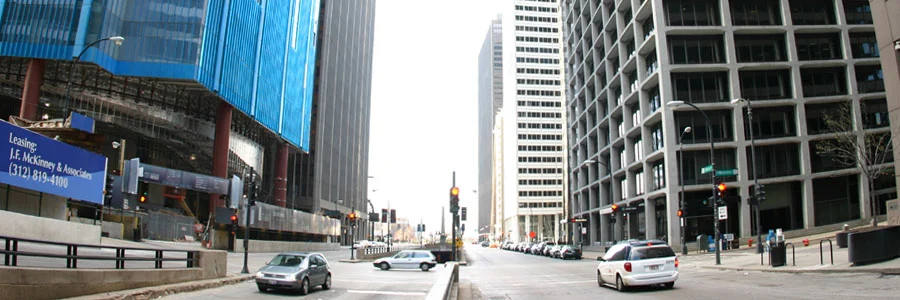
T1 Internet Service vs Cable Internet
High-Speed Internet T1 and Cable Advantages
There are a lot of high-speed internet connection options you can use for your business.
Two of the most popular choices are T1 and cable internet.
Even though both deliver internet services, their ways of doing it are vastly different, each having advantages.
There are a lot of factors that can affect the speed, latency, packet loss, repair timeframes, and uptime.
Knowing these factors and understanding how each of them works will help you determine which Internet service is better for your business in terms of needs and budget.
Most people are familiar with cable as it has been around for a long time and is more budget-friendly.
But nuances of the T1 internet might elude you.
Read on to learn more.
What is Cable internet
Cable is a high bandwidth and low-cost connection that you can get from a local cable provider through a coax cable network.
The speed of this connection will depend on the cable provider and their network capabilities.
In most cases, the minimum speed for upload and download will be 1 Mbps and 10 Mbps.
Cable is known to be the best-effort service.
This means that there is no service level agreement and service performance guarantee.
Also, like LAN, the network will be shared among several users in the area.
So, even if you buy a high-speed package, you will only get a fraction of those during peak usage because of network congestion.
Cable Latency
Another area for improvement with cable is its higher latency.
Data from point A to Z will take longer, so connection delays and VOIP call quality issues will occur.
The packet loss is usually higher, meaning your data packets might get dropped and won’t reach the destination, resulting in dropped VOIP calls and timeouts.
Cable Reliability
The biggest issues with using cable for your business are the repair timeframes and reliability.
It is common to have 2 to 3 outages every month.
If the cable providers maintain their network in the area, other network users will also be affected.
The repair time frames are also longer, and they must get someone onside to fix the issues.
Also, since it is a best-effort service, you might need the internet for a few hours.
Conclusion
Cable can be a low-cost solution for businesses that have higher bandwidth needs.
However, there are a lot of performance issues and risks that you must consider before you contact a cable service provider.
This high-speed internet connection is only recommended for a small business in most cases, especially with a separate voice network connection like PRI T1, VOIP, and a backup connection.
If there is an issue, your entire business can halt.
What is T1 Internet
If you are looking for a fast internet connection that can keep several systems connected and offers dependability, then T1 might be your best option.
Yes, it is costlier than cable. But if you don’t want to share your bandwidth with your neighbors, opting for the T1 connection is the best move.
T1 Internet Advantages
A big advantage that a T1 Internet connection has over cable internet is the stability it offers in terms of bandwidth and reliability.
In most cases, you will get a service level agreement with the T1, meaning you will have an uptime of about 99.9 percent and a guaranteed performance level.
Also, since T1 is offered using a dedicated circuit, your business won’t be competing with other users for bandwidth, just like you have to do with the cable service.
Your business can count on speed as you have complete bandwidth access.
The T1 Internet lines are the reserved circuits working over fiber optic or copper cables.
For your business, you have the option of leasing a dedicated line. This line will be plugged into your network's router with 24 channels.
The information will be transmitted through these 24 channels to prevent overloading or delays.
Which is better: T1 internet or Cable internet
With T1 internet service, you will enjoy the benefit of availability.
If you have telephone service, you can get the T1 service as well.
Also, with T1, you will receive 24 voice and data channels, making this an extremely flexible option.
With T1, you will also get a relatively faster speed for upload, which can be quite advantageous for businesses that have to upload large files regularly.
Furthermore, since the T1 is symmetrical, your business will have the same upload speed as the download speed.
This isn’t the same with the cable internet service providers.
T1 is also an amazing option for businesses where you need multiple computers connected to the internet at high speed.
When you have cable, one of the main advantages you will enjoy is that it works optimally for large-bandwidth services such as videoconferencing and streaming video and audio.
In most cases, the cable access is asymmetric, which offers fast download and slower speeds for upload.
So, if your business has a cable service, you can get a download speed between 15 Mbps and over 100 Mbps.
This is a lot faster than the T1 service. However, your upload speed will be much slower, ranging between 1.5 Mbps and 5 Mbps.
If you are considering T1 internet service, it is important to note that with the T1 line, you can carry data 60 times more than the data carried on a cable modem used for residential purposes.
Unlike the cable service that gets knocked out by a storm, your T1 lines won’t be disrupted.
If your business relies heavily on a fast internet connection, getting the T1 internet connection will work best for you.
However, the right choice depends on what type of business you have and the internet requirement for the smooth functioning of your business.
